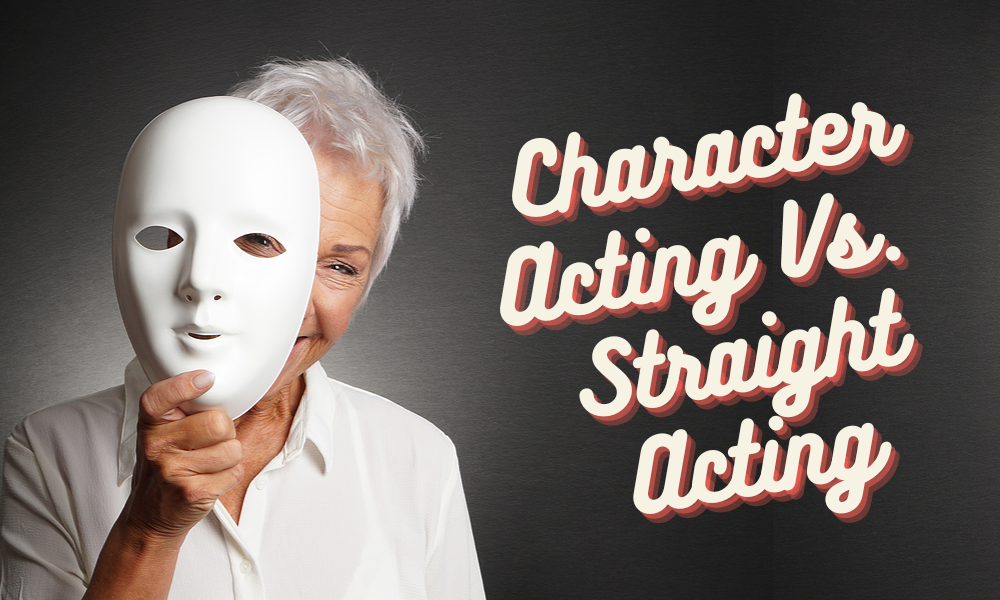
book writing
A character actor is a performer specializing in bringing secondary or supporting characters to life in a film, TV show, play, etc.
Unlike leading actors, who often play the main characters a story revolves around, character actors typically play roles that help to enrich, challenge, or complement the main storyline.
There are two reasons why this word might be hard to understand. First, different people have different ideas about what a character actor is. Second, when actors are on screen, they are all officially playing characters, so it makes sense to think that all actors are character actors.
This guide will clear up any misunderstanding about the term, explain thoroughly, and discuss the role of character actors.
What Does A Character Actor Mean?
A character actor is an actress who specializes in playing parts with little dialogue. It’s possible to call these stars actors because they usually play smaller parts instead of leading roles in big movies.
Character actors are often known for being able to give their roles a certain kind of personality. Some might say these actors’ acts are one-dimensional or don’t seem as real as other actors who play similar roles.
Others think these acts help make the story more believable, but few think they are too predictable.
The Role of Character Actors in Cinema:

The character actor is sometimes the most exciting and well-known player in movies.
In movies, although they are not always given enough credit. Although primary actors generally command attention, character actors significantly enhance the cinematic experience.
Their contributions extend well beyond their screen time, providing depth, authenticity, and subtlety to their roles.
Character Acting Vs. Straight Acting:

The way you do it is one way to think about character acting. To understand the difference between character acting and straight acting, you need to read this:
- Straight acting means playing people who are a lot like yourself. Therefore, analysis of the character before starting rehearsals. Instead, you should trust your gut and act as you would.
- For character acting, on the other hand, you have to do a lot of study on the character and sometimes even live as them for a while before the show starts.
Character acting is very different from other types of acting because you have to play a very different role from your personality. Also, few actors are naturally versatile, so it’s easy for them to play those roles.
To do this realistically, the Ghostwriting Founder studied the character extensively and then wrote some movie plays.
Facts About Character Acting:
Here are some facts that make character acting different and exciting:
- Character acting is needed to set stars apart from other people. Character actors are still used to give movies and TV shows more depth, even when they don’t have a character actor as the main character. Characters who are very specific, like The Oracle in The Matrix, can help viewers see a character’s problem from a different angle. Characters who are funny, like Fred and George Weasley in Harry Potter, can add a comic touch.
- Character roles are less exciting than their lead parts. Also character players are less famous than leads, so they have less star power and are paid less than big names like Brad Pitt. A character player is likely someone whose face you know but not their name.
- There are times when special skills can help define character playing. Some artists use a skill set that helps them play different characters, like boxing, dancing, acrobatics, etc. The actor will play parts that need those skills so often that they’ll become “typecast” and find it hard to get work in other areas. Here, you can find out more about Special Skills for artists.
- It bothers some actors to be called character actors because they want to be leads and not just “supporting” roles all the time. People called “character actors” often find that casting directors won’t allow them to try out for lead parts. This means that they are stuck in roles they may not enjoy. Find out more about being typecast as an actor here.
- Character actors can get more work in a year than lead players. Since character actors usually play smaller parts that don’t require as much time, their resumes are generally much longer and have a lot more roles on them than those who play leads.
Examples of Character Actors:
The following stars are well-known in Hollywood:
- Liz Marvel has been in House of Cards, Homeland, and Law & Order. Most of the time, she plays strong women who lose their goals by the end of the movie or TV show, like Heather Dunbar in House of Cards and President Elizabeth Keane in Homeland.
- Many people know Judy Greer from her parts in 13 Going on 30 and Ant-Man. She has over 150 acting credits and is happy with only getting “character acting” parts. She has made the most of her acting career by giving each role her full attention and learning as much as she can from it.
- Djimon Hounsou is cast in a lot of different supporting parts. He played minor roles in over 50 movies, such as Gladiator, The Island, Guardians of the Galaxy, and more.
Key Characteristics and Profound Details
| Aspect | Details | Comments |
|---|---|---|
| Definition | Specializes in secondary roles with less dialogue. | Different from leading actors. |
| Role in Cinema | Enhances cinematic experience, adds depth and authenticity. | Often underappreciated. |
| Character vs. Straight Acting | Requires extensive study and immersion into the character. | More challenging than playing roles similar to one’s own personality. |
| Unique Traits | Often typecast, bring specific skills like boxing, dancing, etc. | Can lead to being pigeonholed in certain roles. |
| Industry Perception | Less fame and pay compared to leading actors. | Often recognized by face, not name. |
| Work Volume | Tend to have more roles due to shorter commitments. | Longer resumes than leading actors. |
| Notable Examples | Liz Marvel, Judy Greer, Djimon Hounsou. | Known for diverse and impactful supporting roles. |
Conclusion:
The character actor can be seen in films, TV shows, and plays, but they are best known for giving characters a lot of depth and complexity. To fully bring their personalities to life, they often need to know much about the places or times where their scenes occur.
Actors who play characters don’t just act; they change into different people, each with their own story, battles, triumphs, and essence. In this way, they become vital, pulsing veins through which real stories flow.









Leave a Reply